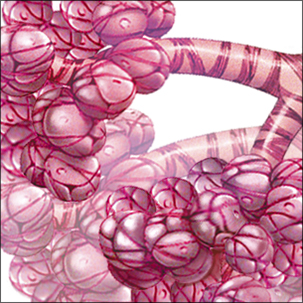-
Health & Wellness
Many Possible Causes of Irregular Periods
Many Possible Causes of Irregular Periods
September 16, 2011
Dear Mayo Clinic:
I'm 41 and have not had a period in seven months. It has been off and on for two years. Tests show that I am not going through menopause. What could cause this?
Answer:
Irregular periods have many possible causes. Your past medical health, certain medications, lifestyle, and current medical conditions can all affect your menstrual cycle.
The menstrual cycle, which is counted from the first day of one period to the first day of the next, isn't the same for every woman. Most women have a period every 21 to 35 days that lasts about two to seven days. Your cycle may be regular — occurring at the same interval and lasting about the same length of time every month — or somewhat irregular, and your period may be heavy or light, painful or pain-free, long or short, and still be considered normal. At age 41, however, not having a period at all for seven months calls for some investigation.
The first thing to consider is pregnancy, because, even when your periods are irregular, you still may be ovulating. Once pregnancy is ruled out, review your health history with your doctor. If you've had irregular periods in the past, this pattern might just be normal for you. If your periods have been regular, but you've had a history of ovarian problems, such as ovarian cysts, that might warrant a closer look. Hormone-producing cysts can cause irregular periods. Also talk with your doctor about any medications you're taking. Certain antidepressant drugs and anti-anxiety medications, for example, can affect menstruation.
Lifestyle and environmental factors can have an impact on your periods, too. In some cases, high levels of stress may disrupt your menstrual cycle. Excessive exercise could cause periods to stop for a while. Extreme weight loss and eating disorders can affect your cycles, as well.
If nothing in your history offers clues, the next step would be for your doctor to check for an underlying medical condition. Some thyroid disorders may lead to irregular periods. High levels of the hormone prolactin could also be the source of the problem. In some cases, prolactinoma — a noncancerous tumor of the pituitary gland in your brain — may result in the overproduction of prolactin. A variety of other disorders could also cause irregular periods, including anemia, polycystic ovary syndrome, endometriosis, pelvic inflammatory disease and uterine fibroids.
You mention that tests show you aren't going through menopause. Because a woman's hormone levels can fluctuate considerably, the diagnosis of menopause usually isn't determined through a blood test or any other diagnostic study. A variety of factors should be considered when interpreting these tests, including your age, menstrual history, and what symptoms or body changes you're experiencing.
It's possible you're starting perimenopause — the time when a woman's body shifts from regular cycles of ovulation and menstruation toward menopause. Signs of perimenopause are not uncommon for women in their 40s. But if you are in perimenopause, you likely would have other symptoms in addition to irregular periods, such as hot flashes or night sweats.
If a medical evaluation uncovers no problems, your doctor may suggest you take the hormone progesterone to trigger a period. If there's no response, you could be in perimenopause or there could be a problem with your ovaries, resulting in estrogen deficiency. Both conditions need attention because early menopause and low levels of estrogen can affect your long-term health, particularly your bone health. If, however, your body responds to the progesterone, and you have your period, you do not have a deficiency of estrogen. In that case, there's probably no cause for concern.
To determine why you're not having periods, see your doctor to have your condition evaluated.
— Jacqueline Thielen, M.D., Women's Health Clinic, Mayo Clinic, Rochester, Minn.
Related Articles







